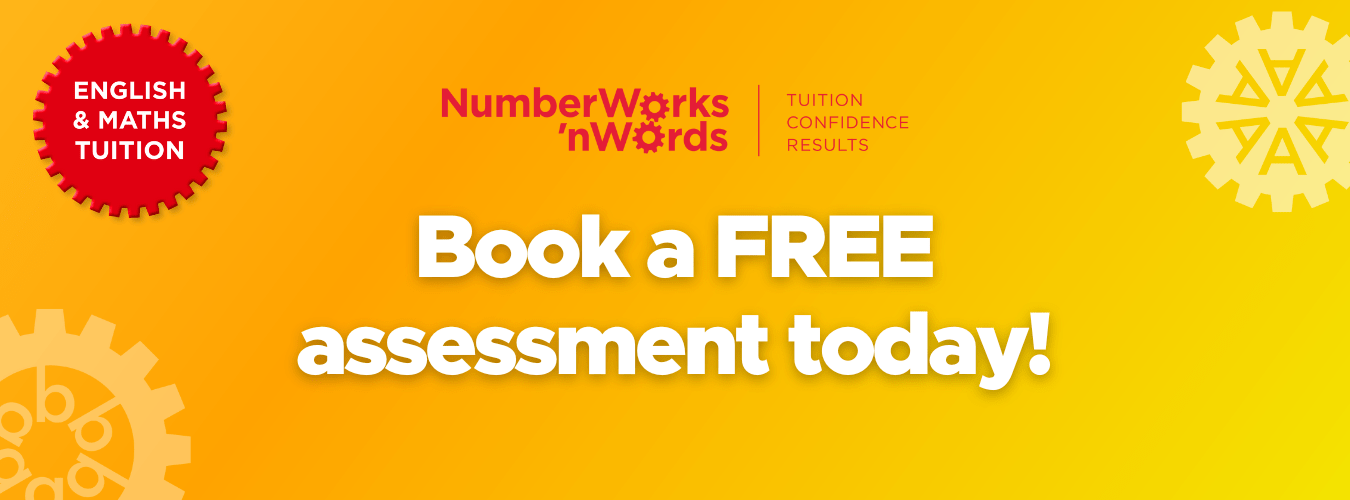Growth Mindset for Kids
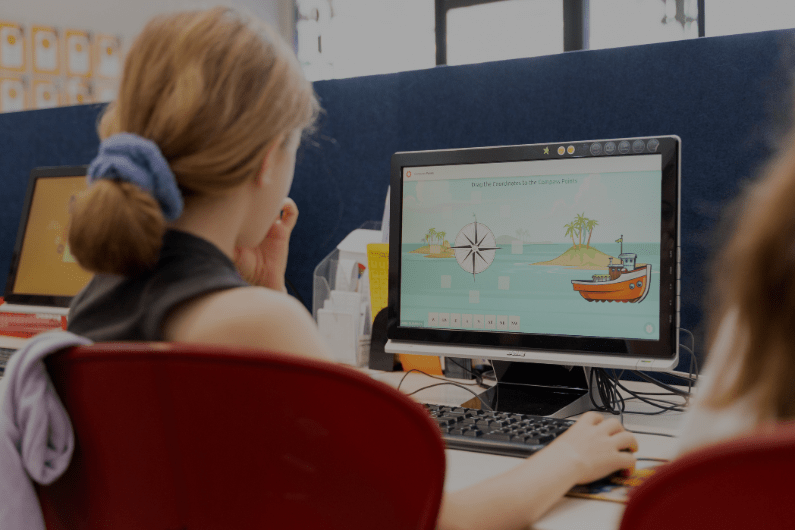
For the last couple of generations, parents and educators have championed the recognition and celebration of children's achievements. Positive reinforcement has been deemed the key to motivating learning, resulting in the acknowledgment and celebration of each child of young age's strengths and talents.
In classrooms and households, children were applauded for their excellence in various subjects. Some older students were praised for their mathematical prowess, while others were celebrated for their skills in writing, arts or sports. The belief was that each child possessed a fixed level of intelligence, and the ultimate goal was to achieve according to their perceived potential.
However, over the past few decades, a new perspective has emerged—a paradigm shift in education, learning process and personal development—the concept of a "growth mindset." This revolutionary idea challenges traditional notions of intelligence and learning and holds the potential to transform the way we approach education.
In this blog, we will delve into the growth mindset concept that challenges the traditional notions of intelligence and learning.
Is your child struggling to keep up with schoolwork? Are they falling behind? Are they bored in class? Or are you looking for extension work for your child? Check out our eBook to learn more about how we help your child improve academically and build confidence through our in-centre after-school tuition.
The Fixed Mindset
A fixed mindset is characterised by the belief that intelligence and abilities are inherent and unchangeable traits. Individuals with a fixed mindset tend to shy away from challenges, fear effort and perceive failure as a reflection of their limited inherent ability.
This fixed mindset can lead to self-imposed limitations and hinder personal progress, constraining achievement within the confines of perceived inadequacies.
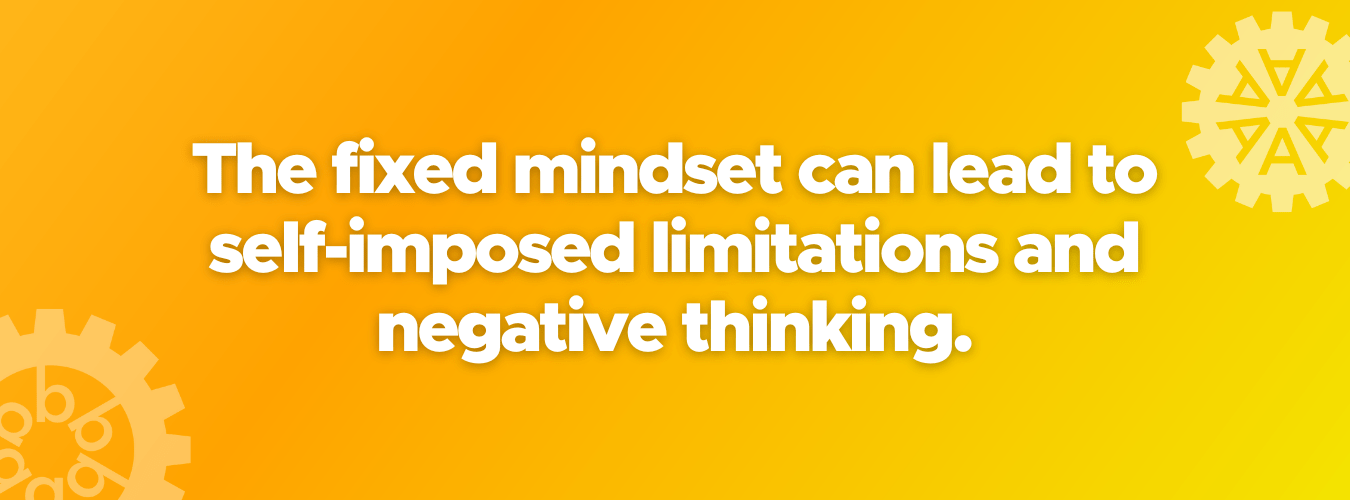
The Growth Mindset
In contrast to negative thinking, a growth mindset and positive attitude foster resilience, increase motivation, curiosity, and a hunger for self-improvement. Those with a growth mindset firmly believe that abilities and skills can be developed through the right mindset, dedication, effort, and a willingness to embrace challenges.
By understanding the power of potential, individuals with a growth mindset unlock the door to endless possibilities and surpass their perceived limitations.
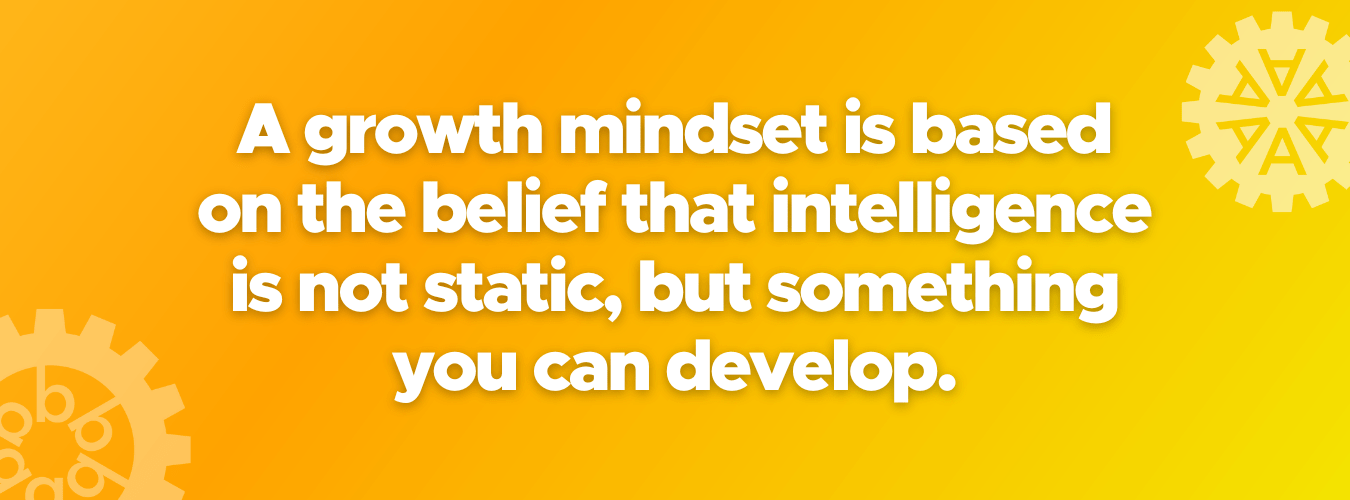
The Core of a Growth Mindset
At the heart of a growth mindset lies the belief that intelligence is not a fixed trait but something that can be developed. People with a growth mindset want to learn, viewing challenges as opportunities for growth. They understand that sustained effort can lead to success, they welcome critical feedback as a means of improvement and draw inspiration from the achievements of others.
Scientific Foundation: The Brain's Capacity for Continuous Improvement
The science behind a full growth mindset approach is firmly grounded. When we learn something new, our brain builds new connections between neurons. Repeating and practising the right strategies or knowledge eventually creates permanent pathways in the brain, facilitating further learning and development with a mindset.
Carol Dweck, a psychology professor at Stanford University has spent her lifetime researching mindsets; identifying and exploring the two different mindsets.
Carol Dweck found that people with a fixed mindset want to appear smart. To achieve this, they tend to avoid challenges, give up easily when things get difficult (often saying it’s too hard or boring), see sustained effort as pointless (you’re either good at something or you’re not), ignore critical feedback and feel threatened by the success of others.
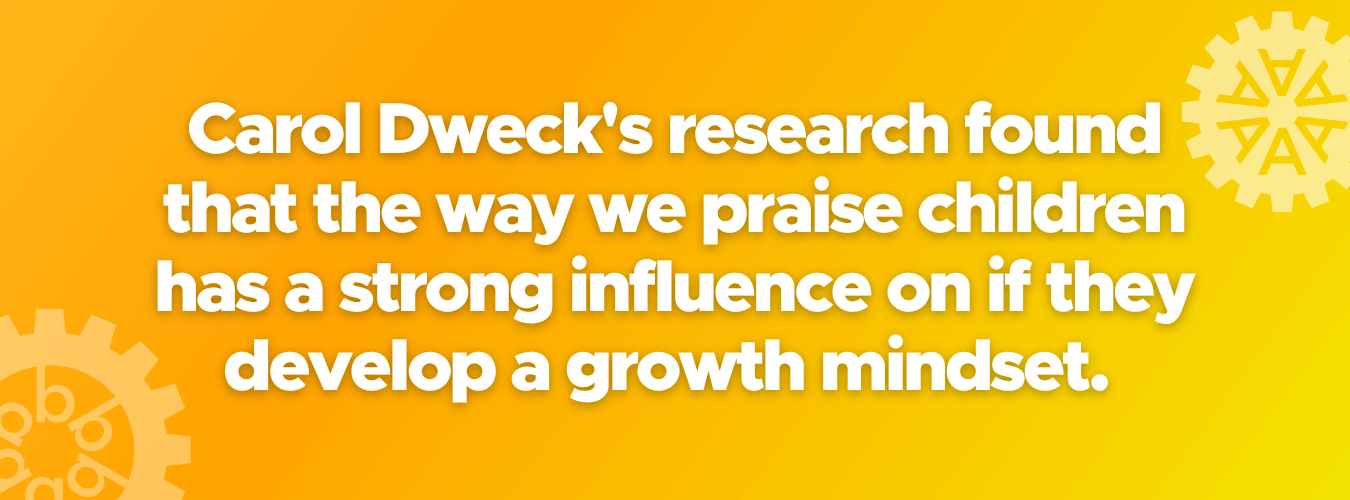
Nurturing Growth Mindset in Children: The Role of Praise and Effort
Developing a growth mindset in children is a transformative journey. Carol Dweck's research has shown that the way we praise children plays a significant role in shaping their mindset. How we praise and reward effort, such as acknowledging hard work and perseverance, reinforces a fixed or growth mindset.
If we praise a child by saying “Well done, you are good at that” we reinforce a fixed mindset early, but if we praise and reward effort by saying “Well done, you did amazing things and must have tried hard” this will reinforce a growth mindset.
Encouraging a more positive outlook and attitude toward challenges and nurturing a thirst for learning contributes to fostering a growth mindset in children.
Nurturing Resilience and Growth-Oriented Perspectives
In one of Carol Dweck’s studies, children were given puzzles to complete. One group of older students was given fixed mindset feedback and the other received growth mindset feedback.
When later offered a choice of puzzles, the fixed mindset group tended to choose easier puzzles to succeed and appear ‘good at them.' The growth mindset group, however, chose more challenging puzzles and persevered with them.
Parents and educators have considerable influence in shaping a child's mindset early. Research has shown that the type of praise and reactions parents offer during a child's early years can profoundly impact their outlook and mindset for years to come.
One study has shown that the type of praise parents gave when children were pre-schoolers determined whether the children would have a fixed or growth mindset for up to five years later.
Another study showed that the mindset of children at a young age is affected by the way their parents react to failure, whether they have a negative view of failure and see it as a result of lacking the ability, or if they view failure as a chance to learn.
Demonstrating resilience in the face of failure and encouraging students to understand a growth-oriented perspective, empowers children to approach challenges with confidence and a growth mindset.
The Impact on Education: Growth Mindset in Schools
While schools across Australia may not explicitly refer to teaching growth mindset, many are integrating growth mindset activities and strategies into their curriculum. Enriching the learning experience for students, these initiatives foster a culture of resilience and develop confidence and continuous improvement.
Do parents have much influence?
The good news is, parents can positively influence their child's mindset using the concept of neuroplasticity, where the brain can reorganise itself in response to experiences and learning.
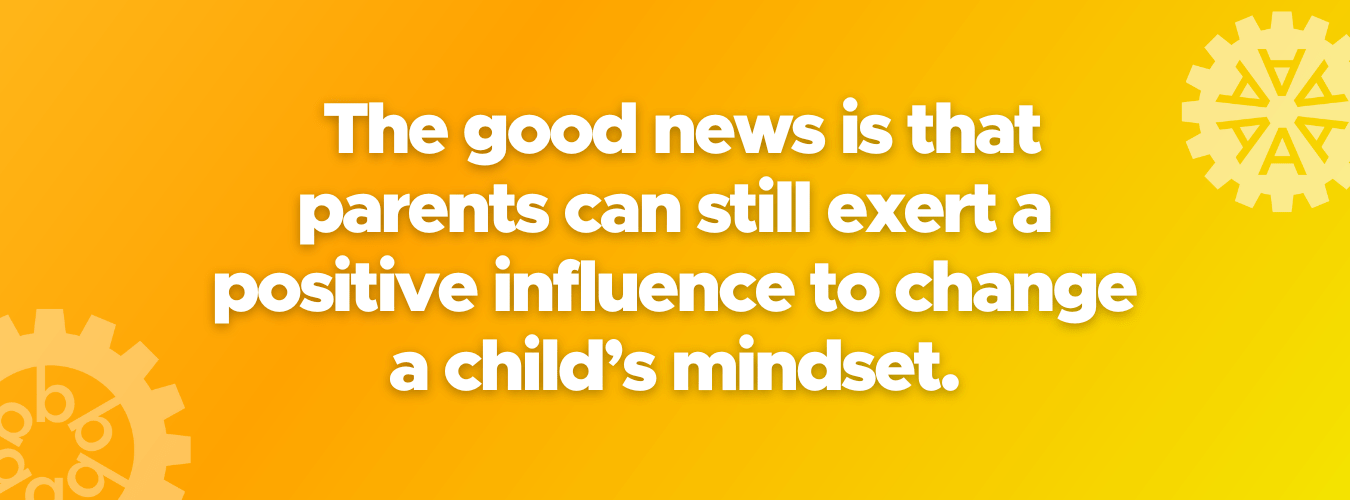
Shifting from a fixed mindset to a growth mindset may seem challenging, but the brain's inherent capacity to change offers a pathway for positive transformation. Here's how parents can assist children in developing a growth mindset:
Emphasise the Learning Process:
Encourage children to value the journey of learning and improvement as much as achieving specific goals. Celebrate their progress and small steps towards growth.
Use Effort-Based Praise:
Praise children for their efforts and hard work, reinforcing the idea that diligence and dedication lead to progress and success.
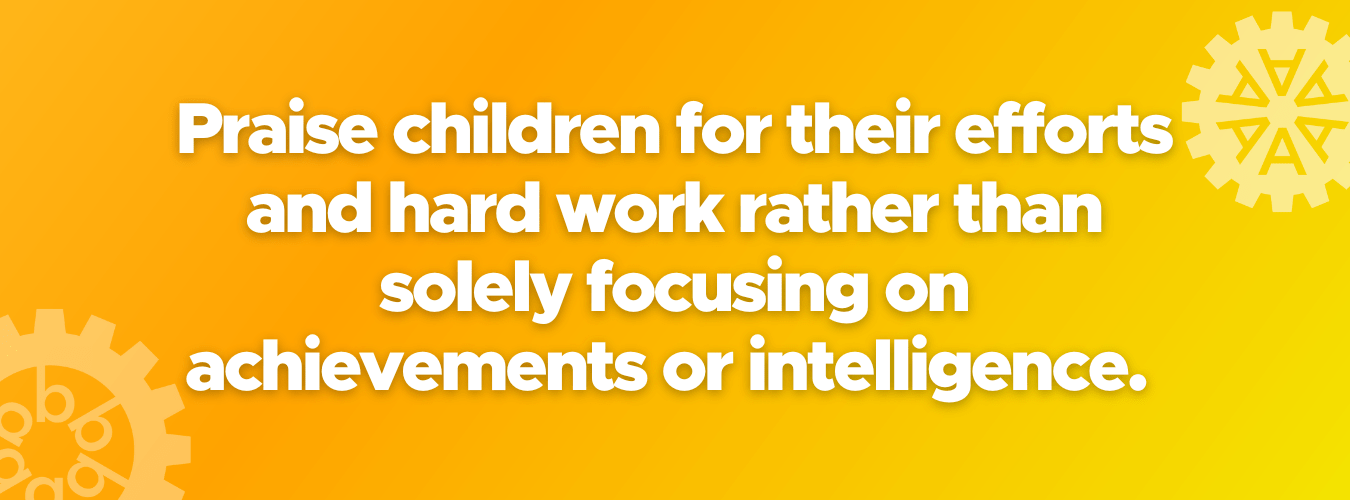
Embrace Mistakes as Learning Opportunities:
Normalise mistakes as natural parts of learning and encourage children to see them as chances to grow and learn. Help them identify what they can learn from their mistakes and how they can improve in the future.
Model a Growth Mindset:
Children often emulate the behaviour of adults around them, so showing a growth mindset can inspire them to do the same. Be a positive role model by demonstrating a growth mindset in your actions and language. Share your challenges and how you learned from them.
Instil a Belief in Continuous Improvement:
Nurture a love for learning and empower children to embrace challenges, believing in their ability to continually improve and achieve their goals.
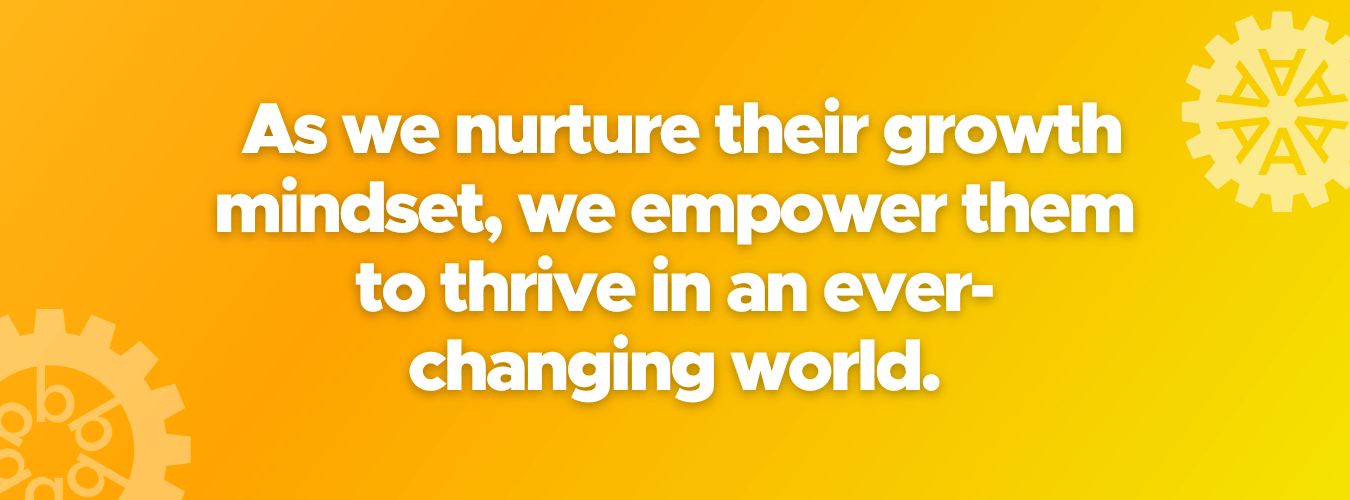
Empowering Growth Mindset Through After-School Tuition
NumberWorks'nWords can play a significant role in developing a stronger growth mindset in your child. With a focus on fun, perseverance, and progress, our carefully selected learning challenges build confidence and self-belief in our students.
Discover the transformative potential of a growth mindset for your child's educational journey. Contact your local NumberWorks'nWords centre today and book a free assessment to embark on a journey of learning and self-discovery.
Together, we can nurture a generation of resilient, motivated, and successful individuals equipped to thrive in an ever-changing world. Let us open the door to endless possibilities and embrace the power of a growth mindset in shaping brighter futures and our own lives for our children.
